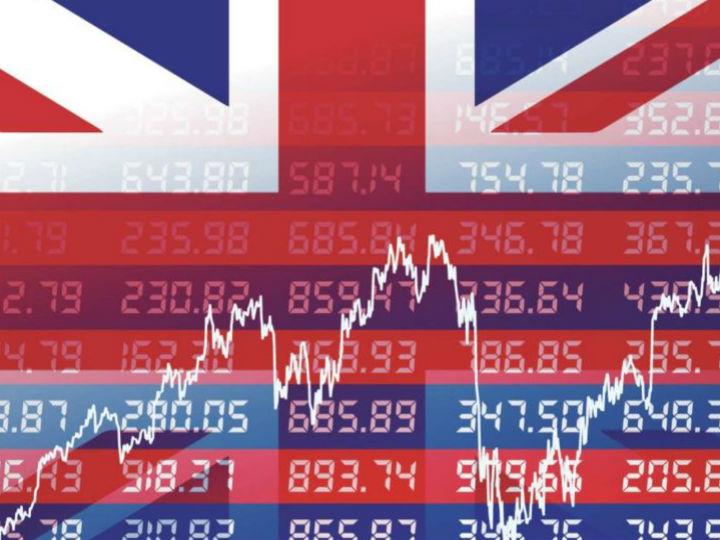
6 expert essays on the future of biotech
By: EBR | Monday, January 27, 2020
What exactly is biotechnology, and how could it change our approach to human health?

Auschwitz: How death camp became centre of Nazi Holocaust
By: EBR | Monday, January 27, 2020
On 27 January 1945, Soviet troops cautiously entered Auschwitz

4 things ISPs can do to reduce the impact of cybercrime
By: EBR | Thursday, January 23, 2020
The role of internet service providers (ISP) in protecting critical national infrastructure cannot be ignored

Climate Change: Evading the “Too Late, Too Costly” Trap
By: EBR | Wednesday, January 22, 2020
The raging bushfires sweeping through Australia, partly related to unusually dry conditions stemming from climate change, are a stark reminder that the 2020s must be a decade of concerted climate action

How AI and satellite imaging can stamp out modern slavery
By: EBR | Wednesday, January 22, 2020
There are 40 million people in slavery today. SDG 8.7 is a commitment to end modern slavery, with the ambition to reduce that number by 10,000 people every day

Air pollution-busting ship fuel in climate backlash
By: EBR | Monday, January 20, 2020
New rules aimed at reducing air pollution from shipping may end up worsening the sector’s climate impact, according to new research, which warns that low sulphur fuels could end up producing more climate-bashing emissions, known as black carbon

Firms Favour Academic Insights That Come From Hubs
By: EBR | Monday, January 20, 2020
In 1981, in the far outskirts of Los Angeles, a start-up made a bet that would change the lives of millions. Applied Molecular Genetics (Amgen) decided to take a chance on University of Chicago professor Eugene Goldwasser’s research and try to clone the gene behind the hormone that spurs the body to make red blood cells

EUROCHAMBERS President Leitl: Chambers have to play a role in Green Deal Investment Plan
By: N. Peter Kramer | Friday, January 17, 2020
EUROCHAMBRES welcomes the European Green Deal Investment Plan, published by the European Commission

Cities must show ’environmental resilience’ to attract investment in real estate
By: EBR | Wednesday, January 15, 2020
Ongoing political uncertainty and mounting concerns of a global economic slowdown made 2019 a bumpy year

Strategising Customisation and Privacy in the Digital Age
By: EBR | Wednesday, January 15, 2020
Five golden rules to effectively balance personalisation and customer protection

Bend, don’t break: how to thrive in the Fourth Industrial Revolution
By: EBR | Tuesday, January 14, 2020
The ’move fast and break things’ ethos that epitomized Silicon Valley business culture for much of the 21st century’s first decade has fundamentally changed the global economy

The Internet broke the news industry—and can fix it, too
By: EBR | Thursday, January 9, 2020
The only way to save journalism is to make readers direct participants in making, and paying for, the media

How 5G and the Internet of Things can create a winning business
By: EBR | Wednesday, January 8, 2020
The Internet of Things (IoT) can allow companies to maximize business value – sensors, software and other technologies in physical assets can connect and exchange data with other devices and systems over the internet

The Rising Turmoil in the Middle East and the Implications for Portfolio Hedging
By: EBR | Wednesday, January 8, 2020
There is no doubt that the death of Qassem Soleimani may become a stepping-stone for rising violence, turmoil, volatility, risks, and even a new war in a troubled region of the world

You May Be a Workplace Hero Without Realising It
By: EBR | Tuesday, January 7, 2020
“Not all heroes wear capes,” the saying goes, and the workplace is no exception

Democrats move impeachment from folly to farce
By: N. Peter Kramer | Monday, December 23, 2019
The House impeachment of President Trump was only a day old when it moved from folly to farce

Economism Vs. Culture: Who Wins?
By: EBR | Friday, December 20, 2019
What are the real driving forces of British politics? Reflecting on the Tory victory in the UK’s 2019 general election

How the Daily Commute Contributes to the Gender Wage Gap
By: EBR | Friday, December 20, 2019
Women’s aversion for commuting motivates them to look for closer and not-so-well paid jobs compared to men

Main points from UK government’s new programme
By: EBR | Friday, December 20, 2019
Here are the main points from Queen Elizabeth II’s speech in parliament on Thursday (19 December) setting out the British government’s legislative programme

Sea Levels: Three Feet Higher This Century
By: EBR | Friday, December 20, 2019
Limiting sea level increases to feet rather than tens of feet requires utility-scale carbon capture



 By: N. Peter Kramer
By: N. Peter Kramer

